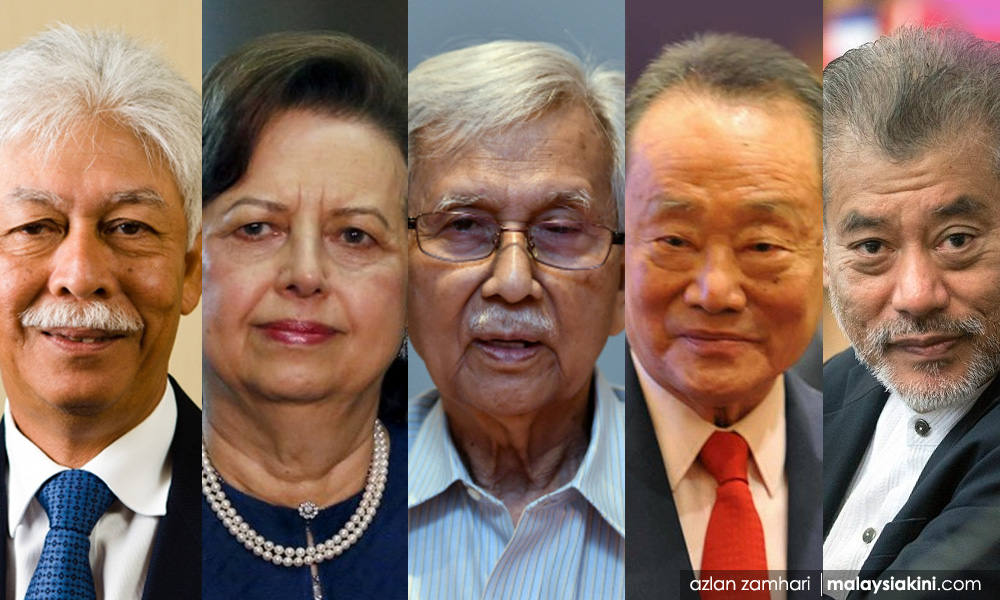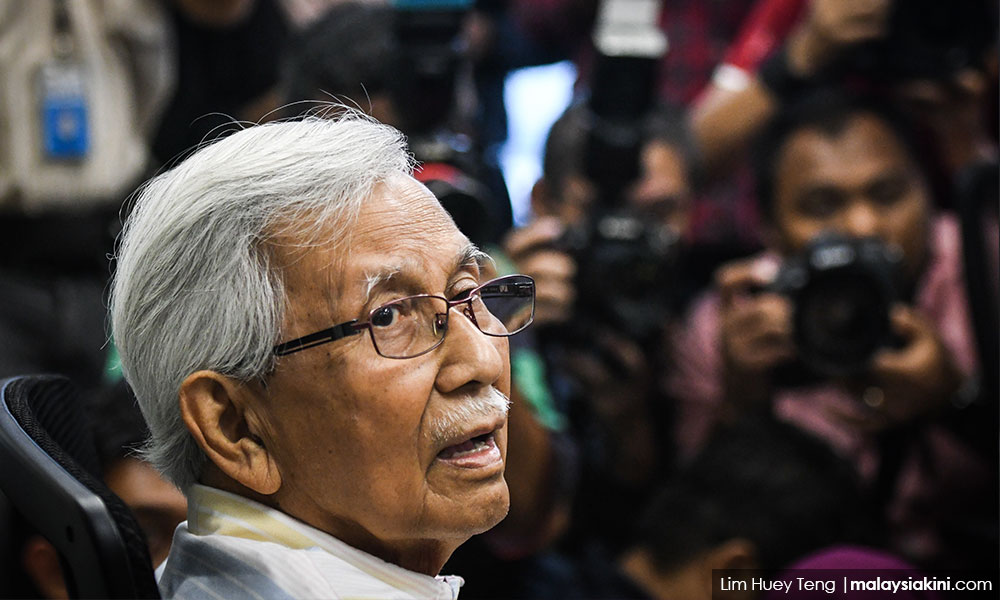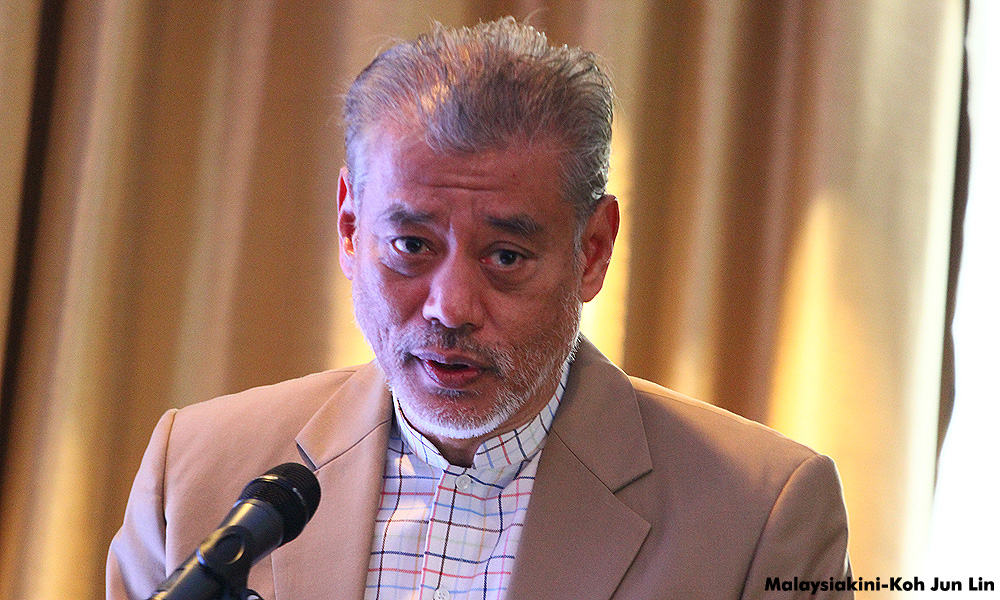
“I have no doubt that the nation has suffered more from undue secrecy than from undue disclosure. The government takes good care of itself.”
– Daniel Schorr
Apparently, the findings of the Council of Eminent Persons (CEP) may not be made public. Prime Minister Dr Mahathir Mohammad made this rather weird statement: "Their job is to investigate and report to me. Whether I accept the report or not is my business. The main thing is to feed me with the information I need in order to make decisions, so it is the government’s business.”
Wait a minute, government business?
Since when are the interests of the public and the government mutually exclusive? Is there any business which is exclusively the province of the government, or is all business of the government the domain of the public?
If the prime minister wanted unvarnished information, he should have just appointed advisers in non-official capacities to give him input during his decision-making process. This way, it is his business and his business alone, and we would judge his decisions were based on the efficacy of his policies.
It is also rather telling that some political operatives think of the government as distinct from the people who voted them into office. As if the government and its institutions were their personal playgrounds, and that politicians and not the people know what is best for the country.
If the CEP’s findings were never intended for public consumption, then why make a spectacle of their formation? Why trumpet the fact that these eminent persons were there to help save Malaysia from becoming one of US President Donald Trump’s “third world shitholes”?

Why the numerous public comments by CEP chair Daim Zainuddin (photo) about the work of the council in digging up the scandals of the past regimes, or the numerous comments by one-time CEP mouthpiece A Kadir Jasin?
Former top civil servant Ramon Navaratnam writes that this present government was voted in inter alia because they promised greater transparency and accountability.
The CEP apparently did consult stakeholders and went through various ministries and if the reporting is accurate, Daim did far more than just consult. Read the reportage by Malaysiakini about Daim’s alleged role in the removal of the country's top judges.
This is the controversial aspect of the CEP, I suppose. This is also why economist KS Jomo opined that the council should be disbanded and individuals contribute when and where the old maverick needs advice.
This, of course, should have been done in the beginning, instead of hyping up the council as being needed because the cabinet was inexperienced or that because these particular steady hands were required to save Malaysia.
Do governments need to keep secrets from the public? You bet they do, especially when it comes to national security. This may not be the politically correct position to take, but I know there are things the government does for national security, rules they break, which is needed especially when dealing with criminal organisations who operate on a currency of, say, religious fanaticism.
Secrecy in this instance is of public interest, which may sound counterintuitive, but when it comes to the men and women who are in harm’s way when it comes to protecting this country, it is imperative.
But this is not one of those situations. Jomo, one of the few who deserves the moniker ‘public intellectual’, claimed that the findings could be “abused by people with all kinds of motives.”
Okay, but could the information be used by people with altruistic motives? The main takeaway for the formation of this council was systemic reform. Or at least that is what I got from the numerous comments by certain members of the CEP and Kadir.
Platform of reform
Sure, some folks may have sniped at some of the personalities involved – as Mahathir mentioned in the press conference when announcing the council, people were clapping loudly when Jomo’s name was mentioned – but the idea of reforming the system with experienced players without the chokehold of Umno, was a good idea.
After all, the reform platform was the one the then-opposition rode into town with, because we were told that after years of corrupt and racist Umno-BN policies, new ideas were needed to save Malaysia.
I just do not understand this line of reasoning when it comes to “sensitive” information and the way how the government operates.
In my pieces questioning why sexual abuse statistics were state secrets, I referred to a statement by Ong Chin Lan, head of the sexual, women and children investigation division of the police, who said that she doesn’t want “people to misinterpret, and think that the government doesn't want to unduly alarm the public about possibly high numbers of child abuse cases.”
So this idea that people with agendas would ‘abuse’ official statistics or in this case findings, is something that the authorities always seem to fear.

Jomo (photo) gives a great example on the implementation of the SST: “What is the relevance of having an alternative published right now? Because it will be abused by people with all kind of motives, who would say – oh you shouldn't have done this, done that.”
This is interesting. Which is worse - people discovering that replacing the GST with SST was not such a good idea for this country, especially considering the legitimacy the CEP adds to the discussion, or people in the opposition using this to further their own political agendas? Information is always politicised, and secrecy just adds another layer of political agenda to any kind of information deemed ‘sensitive’.
After all, if the CEP findings remained secret, this would give people more ammunition to make claims about the report, because their claims would go unanswered. Or worse, the information comes out in dribs and drabs, fuelling the controversy of what the council recommended and why they wanted to keep it a secret.
But here’s the thing. As far as I can remember, there has never been such a council here in Malaysia. This idea that systemic reforms needed to be carried out to save Malaysia is a worthwhile agenda. Were recommendations radical which got to the meat of the issue, or were they cosmetic in keeping with traditional mainstream Malaysian politics?
For the record, I do think that considering the players involved, what is in the findings would be provocative in the sense that went against mainstream Malay politics.
The bottom line is that even if the recommendations were not made to be published, it would be beneficial to Malaysians to read the unvarnished findings of this council comprises of key players in the Malaysian economic and political landscape.
It never ceases to amaze me how Harapan can take a good idea and twist it into something so typically Malaysian.
S THAYAPARAN is Commander (Rtd) of the Royal Malaysian Navy. -Mkini


No comments:
Post a Comment
Note: Only a member of this blog may post a comment.